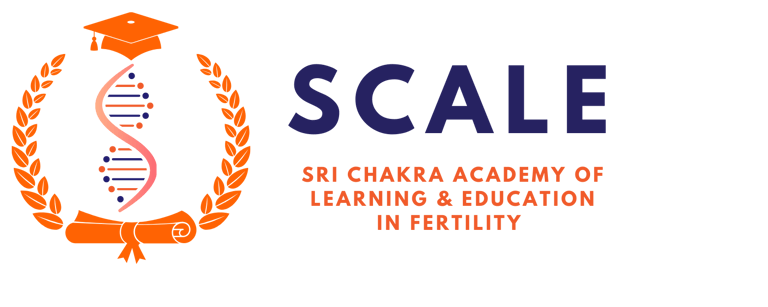
Elevate 2026 Revision Course
Post Graduate Revision Course in Reproductive Medicine & Clinical Embryology
A rapid, high-yield revision programme for exam-going candidates, clinicians, and embryologists.
About Elevate 2026
We are pleased to welcome you to ELEVATE 2026, a focused post graduate revision course in Reproductive Medicine and Clinical Embryology.
This programme is specifically designed for exam-going candidates and for clinicians and embryologists seeking a concise, high-yield refresh of core concepts.
ELEVATE 2026 emphasizes frequently tested topics, clinical relevance, and structured revision, delivered in a time-efficient and exam-oriented format.


Expert Faculty
Exam-Oriented
High-Yield Topics
PG Revision Focus
FAQs
Who should attend?
Postgraduate students, clinicians, embryologists, and art professionals.
What topics are covered?
Focused on reproductive medicine, clinical embryology, and rapid academic updates.
How is the course delivered?
Through interactive sessions designed to prepare you for exams and clinical practice.
Are there prerequisites?
Basic knowledge in reproductive medicine is helpful but not mandatory.
Is certification provided?
Yes, certificates are awarded upon successful completion.
How can I register for the program?
Registration is simple—just fill out the online form and secure your spot by making the payment.
When is day 1?
Day 1, focused on clinical embryology, is on March 6th, 2026.
What topics on day 2?
Day 2 covers reproductive medicine from 8 am to 6 pm on March 7th.
How long is each day?
Each day runs from 8:00 am to 6:00 pm, giving a full schedule of learning.
Is there a day 3?
Yes, day 3 also focuses on reproductive medicine, same hours.
Where is the course held?
IN person - Kanchi Kamakoti CHILDS Trust Hospital,
Nungambakkam, Chennai
online - ZOOM Platform
Who should attend this course?
This course is ideal for professionals interested in embryology and reproductive medicine.
Course Highlights
Engage deeply with case discussions and expert-led lectures.


Case Discussions
In-depth long and short case studies to sharpen your skills.
Examiner Insights
Teaching focused on what examiners really look for.
Interactive Learning
Engage in spotters, viva voce, and lively sessions.
Course Fees
Reproductive Medicine
In-person classes at Chennai hospital
₹3500
Clinical Embryology
Practical embryology course in Chennai
₹2000
Combined Course
Both clinical and embryology Course Inperson
₹5000
Online Reproductive Medicine
₹3000
Reproductive medicine course online
Online Clinical Embryology
Embryology training via online mode
₹1500
₹4000
Online Combined
Reproductive Medicine and Clinical embryology online course


ACADEMIC CONTRIBUTORS
Dr Sanjeeva Reddy
Dr Radha Vembu
Dr Sindhuja Srinivasan
Dr Vasundara Jagannathan
Dr Sandeep Karunakaran
